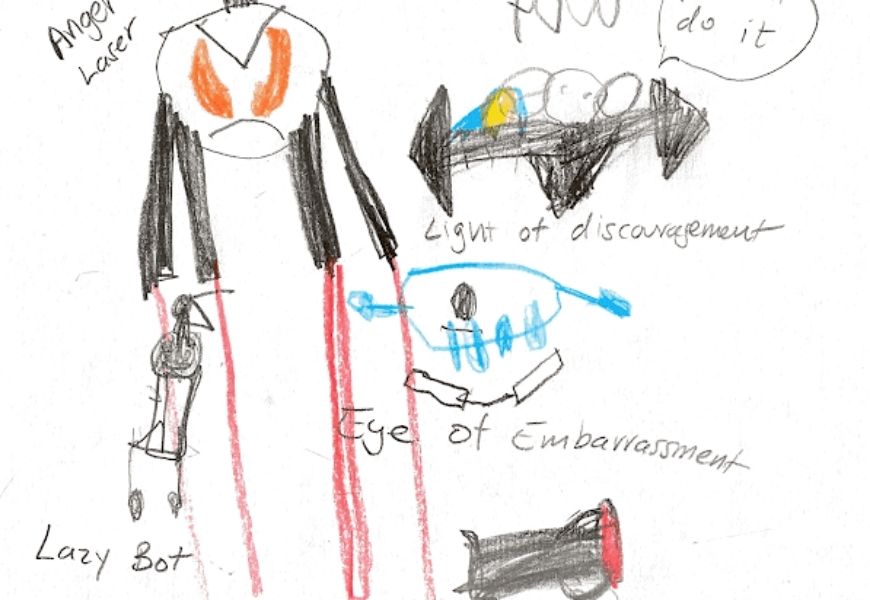 The following is an excerpt from The Big Picture Therapy, a blog run by on of E-Therapy’s professional Occupational Therapist (OT), Jasmine Erazmus.
The following is an excerpt from The Big Picture Therapy, a blog run by on of E-Therapy’s professional Occupational Therapist (OT), Jasmine Erazmus.
With the feeling of trauma and tension and recent shootings, it seems like a good time to share a therapy tip I have for working on emotional regulation and anxiety. As of late my own anxiety has increased. For many kids, quarantine and other changes have already put them on edge and any extra stressor seems to be amplified.
One therapy tip I have for you today:
Give anxiety a silly personality by personifying emotions
(optional with poorly done accents)
One of my clients with panic attacks has been working on things such as coordination and emotional regulation. He did not like the Superflex Program. I use this program with many kids as a great fun way to talk about certain behaviors typical of kids with sensory processing disorder. The cartoon characters have been a great assist for many kids and families to address inappropriate behaviors.
This client thought those characters were “creepy.” Ok, not every program is for every kid.
A few months back, we were in a session, and I imitated his anxiety with a heavy (poorly done) Eastern European accent. He LOVED it and kept requesting I do the voice. Soon he was making impressions with me.
I had him name his it. He named it “Gerald” after a character in a book series he was reading. I said things like. “I’m Gerald, and I LOVE to make you worried.”
Powerful body-based techniques
Eventually we were lightly tapping along certain points on the body inspired by the Emotional Freedom Technique (EFT) and making our own affirmations.
Our affirmations while tapping sounded like:
“Even though Gerald is very convincing I don’t have to listen to him”
“Even though I am worried, I can remember to take deep breaths”
“Even though I am worried I love myself.”
He liked to add, “and I know Jesus loves me”, as he has a religious background. I thought that was endearing.
Integrating body-based techniques to any emotional regulation work is such powerful stuff. I have been working his reflexes as well, and the results have been amazing.
The other day my client proudly told me of a time he defeated “Gerald!” He also listed ways he could defeat him such as by taking deep breaths or asking for a sensory tool. He was proud to tell me that he participated in all but one of his physical education exercises. His anxiety episodes have also significantly decreased.
Last session he made a character called “Sick Man” that makes him feel physically sick.
When to talk about the characters
Remember that in the moment, when these characters are “in control”, is not a good time to talk about them. Instead, I find that it is better to use them to discuss what happened when a kid is regulated. Creating your own language with characters allows you to talk more freely about it without kids feeling shame. After everyone is back to feeling calm, that is when you can talk about what could have done differently.
You may even say, “Wow, you didn’t let ___ stay in control this time. Great job.”
